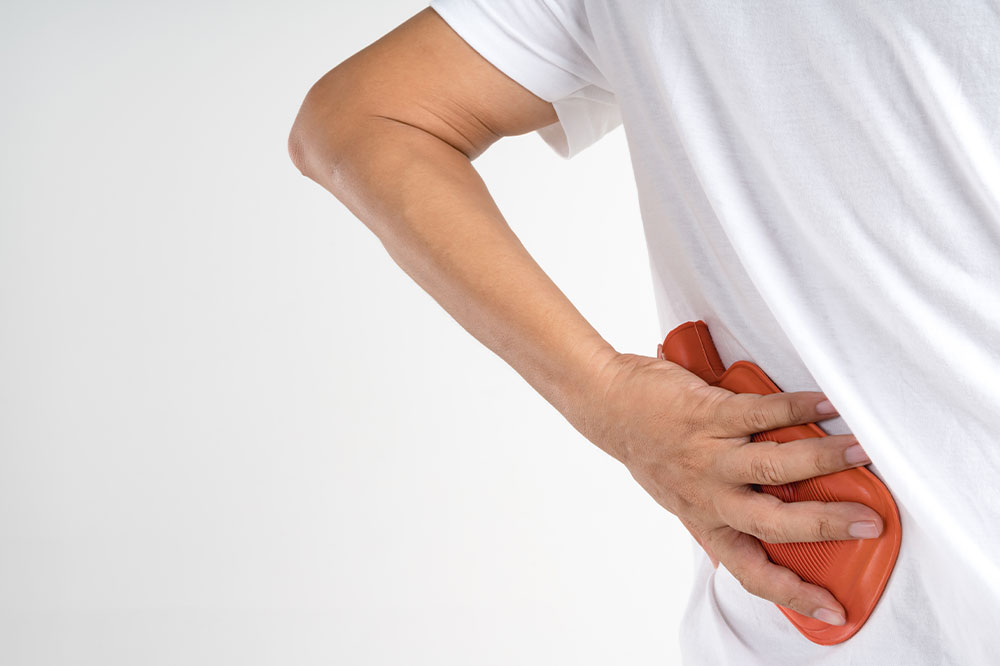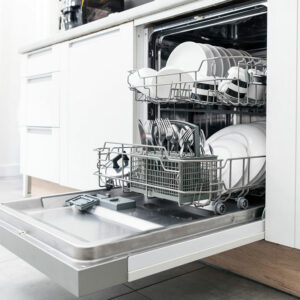Simple remedies for lower back pain relief

Lower back pain is a disorder involving the nerves, muscles, and bones of the back. It is a common problem that everyone suffers from at some point in their life. As the pain affects the lower end area of the spinal cord – the lumbar region, the condition is also called as lumbago. The lumbar region is a complex structure of joints, muscles, ligaments, and nerves all of which perform together to give support to the upper body. Muscles in the L1, L2, L3, L4, and L5 regions of the vertebrae are responsible for flexibility and rotation of the hips. The nerves in this area support the muscles in the limbs. If any muscles or bones are strained in this area, it can impact a person’s routine tasks.
The pain symptoms can be in the form of a dull ache to a sudden stabbing sensation that can affect the body’s mobility. Daily activities like standing up straight, bending or moving around may become painful and strenuous. The condition may occur in an acute form as a repercussion of an injury or a health condition.
Over time the swelling in the muscles or the nerves heal, and the pain subsides. However, if the pain extends over a few weeks, then the condition becomes chronic, and effective measures need to be taken to assuage the discomfort.
Measures to ease back pain
If you are suffering from pain in the lower back, here are a few ways to help reduce the distress:
Rest
In most instances, lower back pain can be improved by putting a break on any strenuous activity – physical or mental. Resting for a few days will take off the pressure from the lower back and allow the muscles relax.
Cold and hot therapy
A hot application aids in improving circulation in the afflicted area. An increased blood flow brings with it essential nutrients and oxygen that help the muscles to heal and stay healthy. You can soak your body in a hot tub. Likewise, you can even use a hot water bottle or an electric heating pad on the lower back. Also, a heat wrap is a useful way alleviating low back pain. The continuous application of low-level heat helps to reduce stiffness and pain.
A cold application, on the other hand, reduces inflammation and acts an anesthetic that slows down nerve impulses. The numbness that manifests after applying the ice pack keeps the nerves from experiencing painful spasms. Using both these applications alternately is beneficial. For painless mobility, apply heat before any activity for relaxing the muscles. When you are resting, cold compression can be used to evade resurging inflammation or pain.
Medical treatment
Medical treatments work in alleviating the painful condition. Along with medications, most doctors will recommend physical therapy for lower back pain relief. Following are some common medical treatments that your healthcare provider may prescribe:
- Epidural steroid injections – Steroid injections are administered for gaining temporary relief from pain by bringing down the inflammation around a nerve root. The steroid is directly injected into the outer part of the dural sac surrounding the spinal cord, through the aid of fluoroscopy – a live x-ray.
- Muscle relaxants – These medications are tranquilizers that act as an antidepressant for the nervous system. Once the brain stops sending pain signals to the affected area, resistance to mobility, any tightness, or spasms are numbed.
- Narcotic pain medications – Generally termed as painkillers, these opioids weaken the signals that are sent to the brain. This works by altering your body’s perception of pain. Such drugs offer relief from the low back pain for a brief period.
- Back braces – A back brace provides support and comfort to the lower back area and helps to get rid of any strain. Combined with physical therapy, a back brace can help speed up the healing process and offer relief from pain.
Exercise
Exercising is instrumental as part of a long-term strategy to achieve low back pain relief in case the condition happens to be chronic. Pain management through a physical regimen involves the release of endorphins that are hormones made naturally in the body. These endorphins act to block pain signals from interacting with your brain.
Types of exercises used to alleviate lower pain:
- Stretching – One of the simplest physical activities, stretching helps to increase your lower back’s mobility levels. Stretching of the hips, and hamstring in the legs ensure that the lower back muscles stay supple and flexible.
- Core strengthening – Your core muscles in the abdomen, hip and gluteus muscles play a critical role in supporting the lower spine. Therefore, you should adopt some useful exercises to strengthen your core muscles.
Remember that you should only take any medications for lower back pain relief after consulting your doctor.



